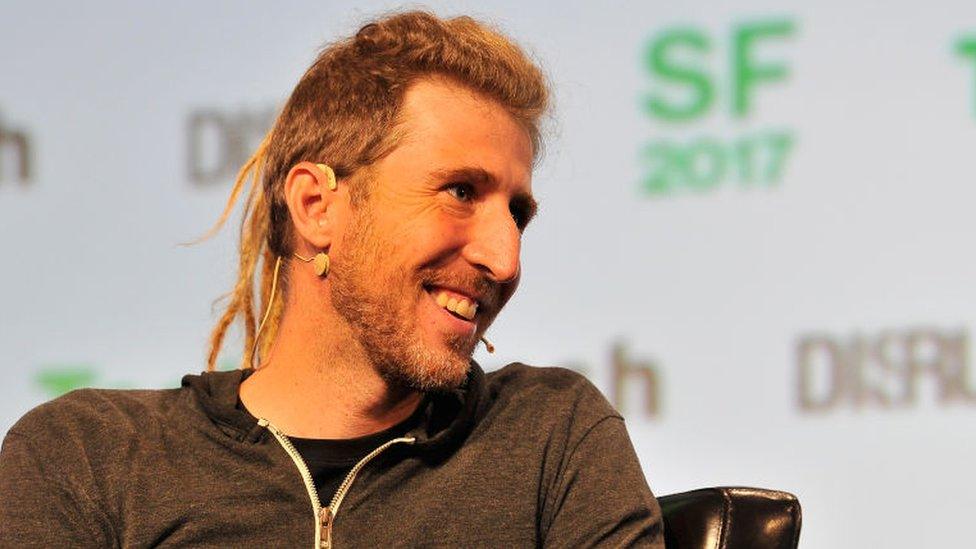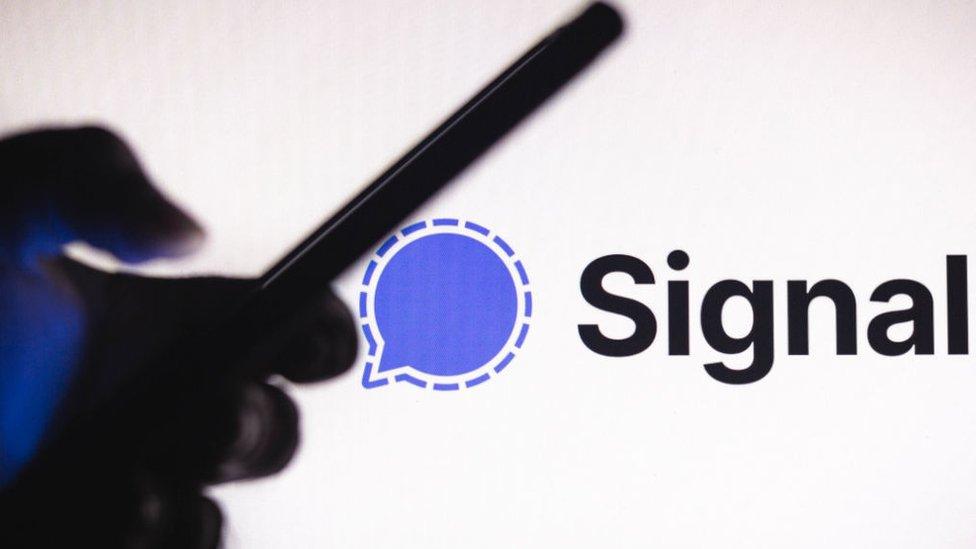Moxie Marlinspike leaves encrypted-messaging app Signal
- Published

Moxie Marlinspike
Moxie Marlinspike, the co-founder and chief executive of encrypted-messaging app Signal, has resigned.
He blogged, external it was a "good time to replace myself as CEO" after working on Signal for over a decade.
Signal recently enabled crypto-currency payments within the app, which has concerned some users.
Mr Marlinspike remains a board member of the Signal Foundation, while the board's executive chair, Brian Acton, becomes interim chief executive.
Sitting alone
Mr Marlinspike - whose real name is Matthew Rosenfeld - blogged he had always hoped to reach a point where Signal could "grow and sustain" beyond his involvement.
"I was writing all the Android code, was writing all of the server code, was the only person on call for the service, was facilitating all product development, and was managing everyone," he wrote.
"I couldn't ever leave cell service, had to take my laptop with me everywhere in case of emergencies, and occasionally found myself sitting alone on the sidewalk in the rain late at night trying to diagnose a service degradation."
More than 40 million people now use Signal.
Instant-messaging apps
The app's popularity increased after planned changes to WhatsApp's privacy policy caused some users to switch.
It is free, and like WhatsApp, messages are automatically encrypted by default.
Both Signal and WhatsApp have benefited from Mr Marlinspike's skills as a programmer and cryptographer.
The Signal Protocol, which he developed, was also integrated into WhatsApp, as it has been into several other prominent instant-messaging apps.
'Real-life harms'
While Mr Marlinspike's tenure as chief executive has seen Signal grow in popularity, a recent experiment with crypto-currency has troubled some users.
In November, the app rolled out to all users a trial of an integrated payment system using a crypto-currency called MobileCoin - which claims to be both highly secure and environmentally friendly.
Mr Marlinspike has reportedly provided, external technical advice to the crypto-currency start-up.
Integrating a crypto-currency is, some say, a risky strategy, creating avenues for criminal misuse of the app and putting it within scope of financial legislation - such as anti-money-laundering laws - and regulation.
Alex Stamos, formerly Facebook's chief security officer, told The Verge, external: "The addition of pseudo-anonymous money-transfer functions greatly increases their legal attack surface, while creating the possibility of real-life harms."
What is encryption?
Mr Marlinspike's replacement, Mr Acton, is also a veteran of the secure-messaging sector.
Mr Acton left WhatsApp, which he co-founded, in 2017 - the messaging app had been sold to Facebook, in 2014, in a deal worth $19bn (£11.4bn) in cash and shares.
He cites, external " differences surrounding the use of customer data and targeted advertising" as reasons for his departure from WhatsApp.
And, in 2018, with Mr Marlinspike, he launched the Signal Foundation, providing funding of $50m.
Related topics
- Published22 April 2021

- Published12 January 2021
